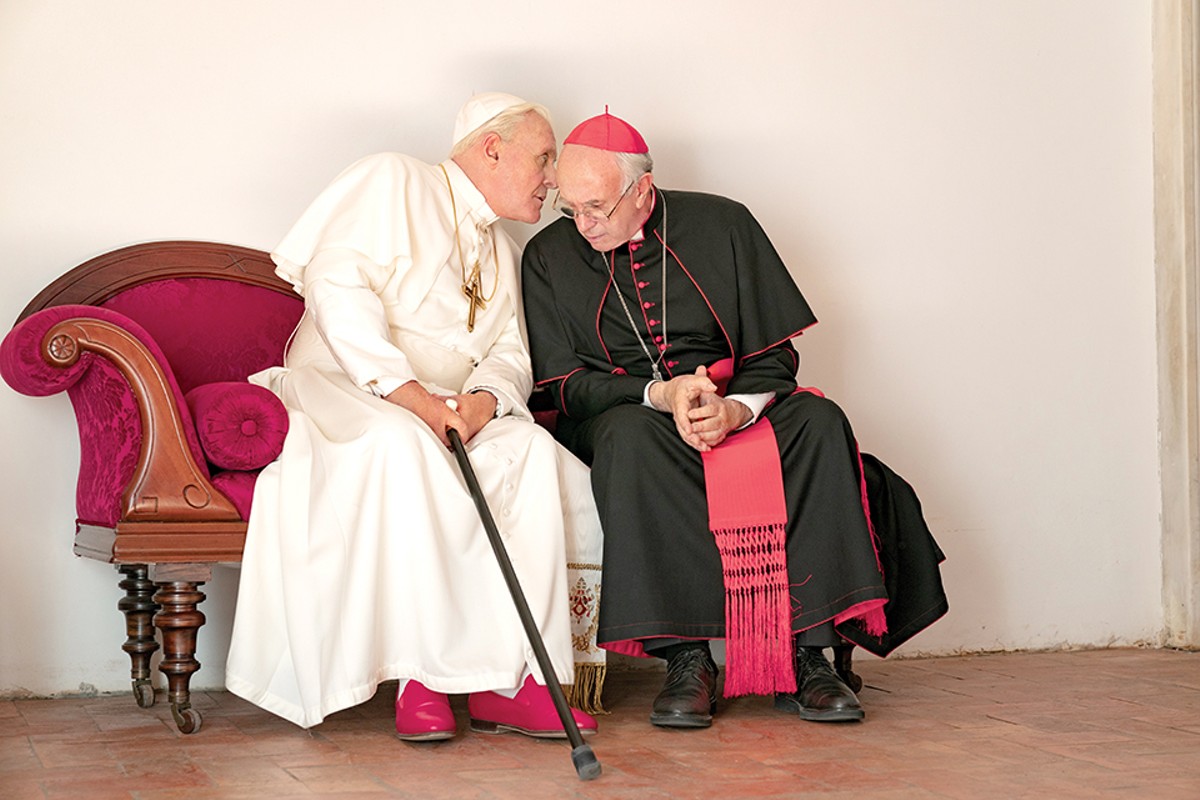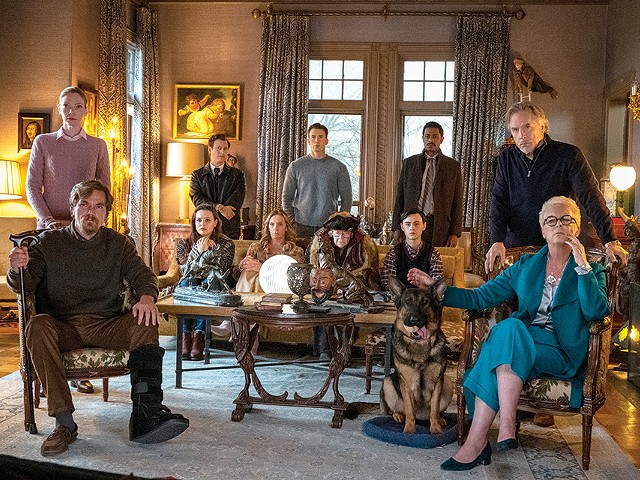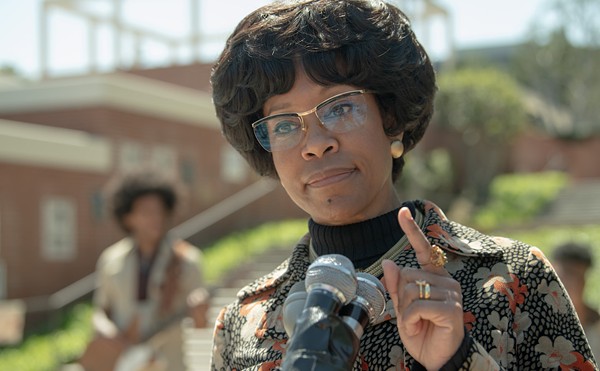The leaders of the Roman Catholic Church are, by tradition and in most cases more likely by temperament, titanic figures, rising above the ordinary masses by pomp and pageantry as well as by their supposed divine calling. Fernando Meirelles' The Two Popes achieves the unlikely task of bringing papal authority down to earth, peeking through Vatican doors to reveal more private aspects of the most recent residents of the Apostolic Palace, the current Pope Francis and his retired predecessor Benedict XVI. It's a surprisingly engaging film, a humane and witty character study that softens its subjects without diminishing the gravity of their influence on 1.2 billion followers. (Disclaimer: As a non-Catholic, my interest in the politics and procedures of the Vatican has been and remains minimal.)
Adapted by Anthony McCarten from his play The Pope, the film begins with a prologue in 2005 after the death of John Paul II, the much-loved pontiff whose 27-year reign strengthened more conservative aspects of the church. In a contentious conclave that required four rounds of voting, the assembled cardinals selected the Bavarian Joseph Ratzinger, despite an unexpectedly strong showing for reformer Jorge Bergoglio of Argentina. Having established its two protagonists, the remainder of the film takes place approximately seven years later, when the Vatican is plagued with scandals and Bergoglio, hoping to retire, is summoned to Rome to meet with Pope Benedict, despite their theological differences.
Most of The Two Popes consists simply of two men taking account of each other, both brought to life by masterful performances from two veteran actors. As Ratzinger/Benedict, Anthony Hopkins preserves the somewhat severe demeanor of Benedict, revealing a man who embraces every aspect of the church's authority but can occasionally let his guard down to express a kind of bemused tolerance of the secular world. Bergoglio/Francis, played by Jonathan Pryce, is a more complex figure; in his verbal jousting with Benedict, he reflects on his decision to become a priest and his troubled role leading his church during Argentina's "Dirty War" of the 1970s. Pryce's performance is an exercise in controlled subtlety. He lets the revelations of his past leak out as if he's almost surprised to learn them himself.
Despite its weighty themes, The Two Popes is consistently lively and frequently comical. McCarten, best known for writing several recent film biographies (Darkest Hour, The Theory of Everything and Bohemian Rhapsody), is serious about exploring questions of faith and responsibility but always through the personalities of his characters, not as abstractions or arguments. Director Meirelles gives the film an unpredictably leisurely pace, even when it takes a sudden turn into the political material of the second act. He's respectful but not overwhelmed by the gravity of his characters and just as mindful of mundane subjects like the process of going through airport security or dealing with untied shoelaces. He directs in choppy yet vibrant scenes that manage to obscure the fact that much of the film is simply two men talking. This isn't just "opening up" a play by adding superfluous exterior shots; it's humanizing it, revealing the conflicted personalities of two men who have taken different paths in balancing the routines of life with their spiritual responsibilities.
The Two Popes is, largely, a celebration of the current pope, but not one that turns its back on the problems of the world. Largely dismissive of the Vatican's tradition and spectacle (as is Francis himself, according to some reports), it shows the popes not as otherworldly masters of divine knowledge but as ordinary human beings who carry their own pasts and problems. Meirelles shows them peeking down from their exalted positions of authority and recognizing the simple and occasionally absurd pleasures of everyday life, like pizza and soccer, reminding us that the barriers between the sacred and the secular are often purely arbitrary. Isn't it about time a filmmaker has looked at the sobriety of a papal conclave and thought "I know exactly which ABBA song would go great with this?"






